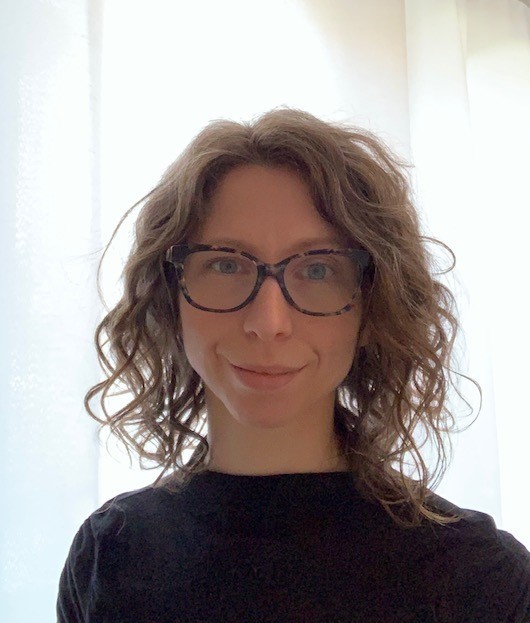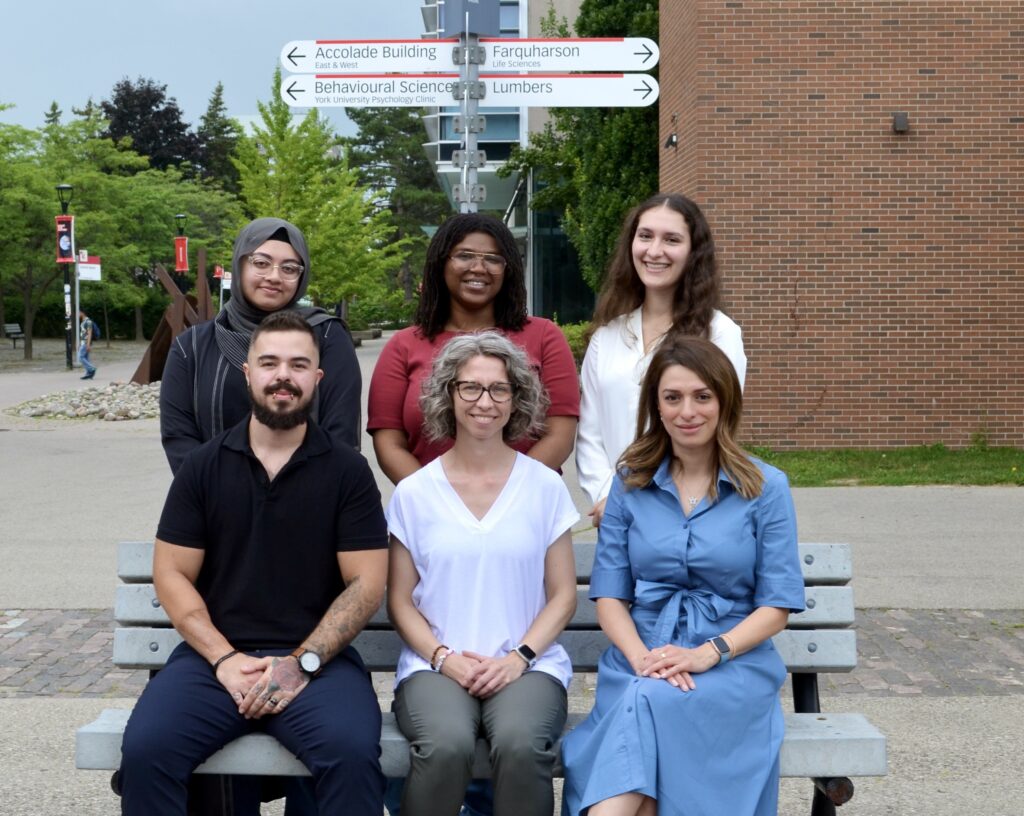
Jodi Martin, an associate professor of psychology, is pursuing an initiative that will help undergraduate psychology students better understand their post-graduation career options and excel in their careers.
Martin once found herself in her fourth year of a psychology degree with no idea what to do next.

She remembers the frustration and stress of not knowing, after graduation, what kind of career she wanted – not even what skills she had, and certainly not where to find and apply for jobs.
“This led to a lot of stress, applying to jobs that were overreaches and eventually many, many unsuccessful interviews,” she recalled. “I ended up going to grad school largely because I didn’t know what else to do.”
Martin graduated in 2006 and finished her PhD in 2014, then realized she faced the same frustrating issue. She worked a few years in temporary academic research positions, then “accidentally” got a job in a business setting where she evaluated corporate training programs and used data and research findings to build a company strategy.
“Until I was in that job, I had no idea that those jobs existed or how fulfilling they can be,” she said. “Given what I was doing in that job, it was all skills and knowledge I had learned in my undergrad, though the extra time and research experience I gained during and after grad school increased my confidence in my abilities.
“I knew when I started at York in 2019 that I wanted to make this career-finding process easier for students, both undergrad and grad. So, this project became the undergrad iteration of that.”

Front row: Noah Couto (project co-ordinator), Jodi Martin (project lead), Yasaman Delaviz (project co-lead).
Not pictured: Raima Shah (student), Mohammed Jabr (student).
Shortly after joining York, Martin recalls being in a meeting with faculty members to discuss the curriculum and what key topics should be covered in courses. “Well, what do our students do after they graduate? What do they do after the program?” she recalls asking to better inform the discussion. “No one knew the answer.”
So, Martin set out to find that answer and help York’s psychology students carve out a successful path through university and beyond.
In 2022, Martin started to mull over a plan to create a program that would integrate career exploration for students starting in first year and help them map out how they could gain the experiences they needed to help them land where they wanted to. She began engaging with collaborators and getting buy-in from various entities, including the Psychology Department, the Faculty of Health and the Career Centre, to name a few.
A year later, with the help of an Academic Innovation Fund grant, Martin started building a project team to provide York undergraduate psychology students with access to a wealth of information about how to gain relevant experience, completed alongside their degree, to help them carve a path to a career.
One of her recruits was recent alumnus Noah Jeydon Couto, whom she tapped on his graduation day.
“I knew right away, after hearing about the plans Dr. Martin had, how incredible this would be for students, knowing myself how difficult it is to map a path through your program and your degree, with psychology being such a broad discipline.”
While collecting data for Martin’s project through focus groups and surveys, Couto was astounded to realize that other students and alumni had experiences that mirrored what he felt as he finished his degree, but also how much there was a demand for exactly what he and Martin were looking to create.
“When we asked them, ‘What can we do to make this easier for you? What can we do to support you throughout your degree?’ they almost entirely outlined this project without having any prior knowledge of what it was.”
Among the 1,000 current students and 200 alumni whose needs were assessed, the latter proved especially insightful. “Since they’ve graduated and had time to reflect, we were able to really get information from them about, ‘What do you wish you’d known while you were here?’ ‘What could have helped speed up your process of getting to the career path you’re on now?’” Martin said.
About 50 per cent of alumni said they had studied psychology because they wanted to work in the mental health field, perhaps as a psychologist, counsellor or therapist, which would mean needing to continue their training through graduate school, Martin said. But when current students were asked the same question, only about 30 per cent wanted to go into mental health work. Instead, most said they planned to enter the work force right after graduating.
Martin’s hunch is that because current students will graduate with more debt than alumni of even just four years ago, they may feel they need to go straight into the work force to pay their student loans. That makes getting started on career planning in year one through Martin’s project all the more important, because students will be encouraged to explore possibilities at York University’s Career Centre. She points out there are many opportunities for psychology students to apply psychology skills in real-world settings. Doctors and health-care workers, lawyers, researchers, teachers and human resource professionals are among the most typical career choices for psychology majors, Martin notes, but there are many other jobs people don’t know about.
That could put students behind.
“By second year, you want to start dipping your toes in a little bit and at least talk to people who work in different career areas,” said Martin. “There are opportunities, both from the Career Centre and from various other areas in the University, where we have panels of people who work in various fields who just come and talk to students about what their jobs are like.
“By third year, instead of just your toes being dipped in, you should be putting your whole foot in the water by signing up to have a mentor,” Martin said. “At third- and fourth-year levels especially, we would suggest students look for more work/study opportunities, volunteering, so accruing more and more experience and seeing what the work is like.”
Martin said they will create a website to map out paths through each year level, or equivalent based on credit completion. For each level of study, the academic requirements will be outlined, as well as community-building activities that students could engage in and career exploration they should pursue.
Yasaman Delaviz, director of strategic enrolment management and program development within the Faculty of Health Dean’s Office, also works on this project and noticed interest and potential in the program beyond psychology students.
“These tools could benefit all programs in the Faculty of Heath, and there’s interest. I think once other units see the psychology one, they will be in a better position to adapt it for their own programs,” Delaviz said.
“All programs, including those that have perhaps a more established path to careers, like nursing, can still benefit from a similar resource, as there are a variety of avenues one can pursue with any degree.”
Martin is confident the support the project will give students will also help ease the stress on first-generation university students, racialized students, and those who must work throughout the school year or have responsibilities for caregiving at home.
“That’s a concern of mine, that most university programs were originally designed for students entering directly from high school, with no responsibilities other than being students. That’s just not reality now,” said Martin.
In the end, what Martin hopes for most is to help students realize their future.
“One of the goals of the project is to lay out on the table for all students the many different things they need to do to get to different places they want to be, so all students can have – at the beginning of their degree – a clearer picture of what’s expected of them. And my hope is, once you know the expectations, it’s easier to plan … and to succeed.”
